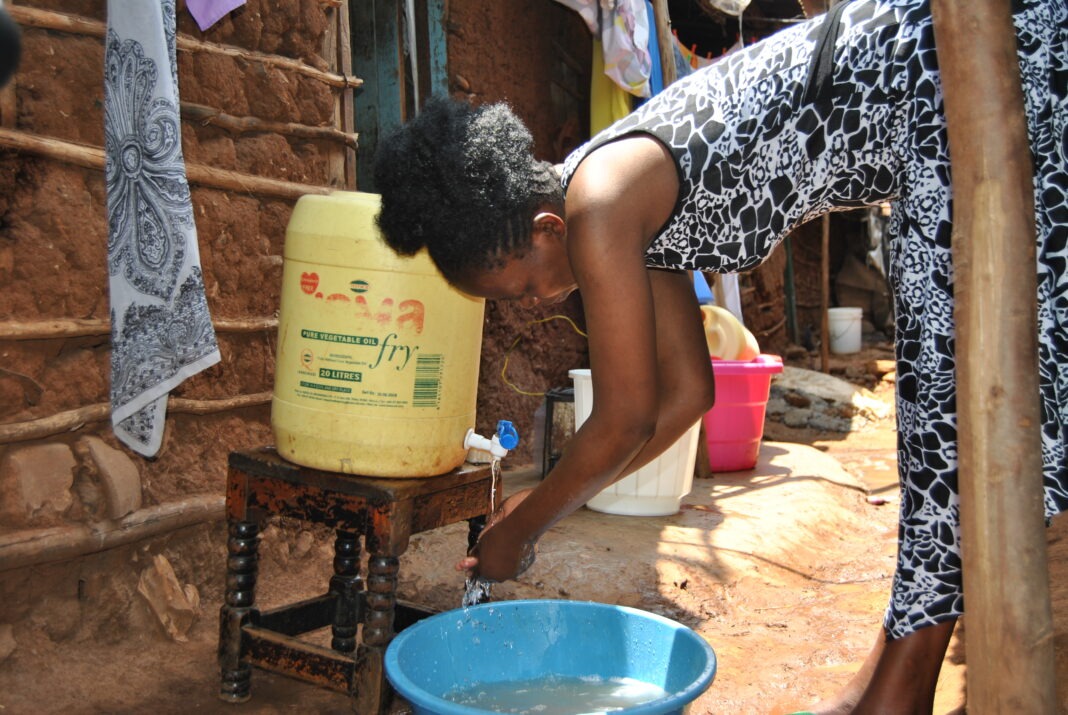KENYA. Kibera, Nairobi. The sun beats down into the streets of Kibera, Africa’s largest urban slum situated in West of Nairobi’s central business district. Raw sewage water flows on the streets along the doorsteps of the mud-walled shanty that defines the slum.
Alice Asudi, a resident of the slum, who has lived here for close to ten years sweeps her house, scoops the trash with her hands, and pours it into an old bucket just at her doorstep. She then turns on a tap fixed to a 20-liter jerry-can and washes her hands with soap.
Asudi has not always been keen on washing hands in the past and as the 47-year-old mother of five admits it, it has led to the spread of diseases, infections, and other hygiene-related illnesses.
“We never used to wash our hands thoroughly with this frequency, but I guess after the coronavirus scare, we now wash them all the time. Sometimes, even after every hour,” Asudi told Transcontinental Times.
WHO’s guidelines to fight COVID-19
But when the initial coronavirus cases were being reported, health agencies including the World Health Organization (WHO), stipulated measures to curb the spread of the virus, mainly pointing out that washing hands or sanitizing them was the only ‘cure’ for COVID-19. This was established after experts found out that the virus was mostly spread by touching the nose, mouth, and eyes.
The announcement opened a new opportunity for community health workers (CHW) in Kibera slums who had been struggling to teach people in the area about the importance of washing hands. They took advantage of the opportunity to emphasize the importance of washing hands to the slums’ residents.
Repha Kuntai, a CHW, working in Kibera says that people are now religiously washing their hands and this has made her work easier.
Apart from curbing the spread of COVID-19, handwashing has been witnessed in Kibera and other slums to generally reduce the spread of hygiene-related diseases illnesses such as cholera and diarrhea, a trend that Kuntai confirms.
“Before the pandemic, we used to have so many diseases like diarrhea, cholera, and some upper respiratory diseases. But after the pandemic, these things have reduced because the residents have adhered to cleanliness norms by washing their hands”, Kuntai told Transcontinental Times.
Data by the WHO points out that 8,27,000 people in low- and middle-income countries die as a result of inadequate water, sanitation, and hygiene each year, representing 60% of total diarrheal deaths. Diarrhea remains a major killer but is largely preventable. Better water, sanitation, and hygiene could prevent the deaths of 2,97,000 children aged under 5 each year.
The real struggle
Dennis Munai, the project manager for Hygiene Behavior Change Coalition program at Amref Health Africa-Kenya stresses that handwashing is the cheapest cure to so many diseases.
“As we are in the midst of the global pandemic, handwashing is the most inexpensive pandemic that we are trying to push for everyone to be able to wash their hands with running tap water and soap regularly”, Munai told Transcontinental Times.
However, he says that the challenge especially in the slums is having and access to water. “One cannot wash their hands as regularly as recommended by WHO because in most cases in the slums, people have to choose between buying food and water. That is the reality right now in these communities,” he stated.




Comments are closed.